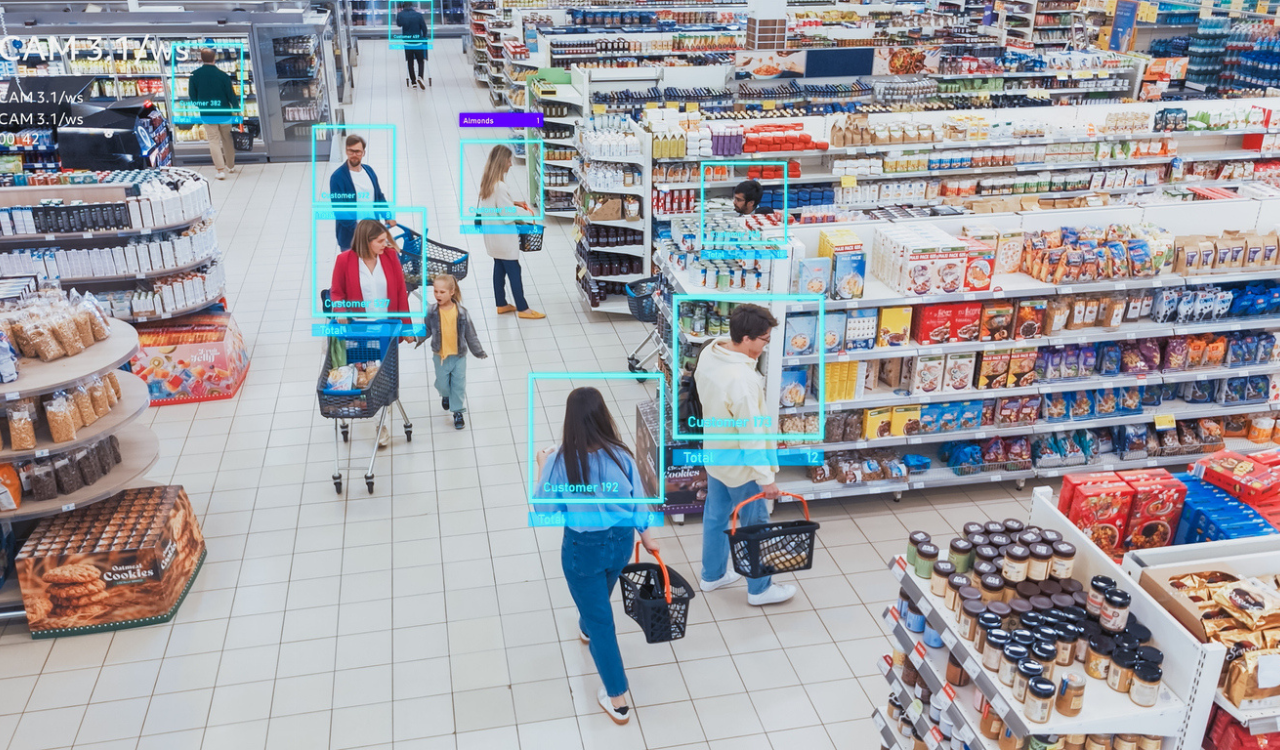Retail needs a new language: Gen Alpha is already fluent in AI. We are previewing a future of how AI companions will change how retailers remain relevant with next gen customers. All techno-socio-cultural changes swirling around us eventually show up in retail. Could we soon see an AI companion bot named “Lululemon Bestie” chatting with teens about lifestyle, fitness, apparel, and their deepest thoughts?
Who else is thinking about AI companionship and its potentially powerful role in consumers’ lives? Mark Zuckerberg who spoke with PC Magazine in April, “Over time, we’ll find the vocabulary as a society to articulate why they (AI companion bots) are valuable, and why the people (teens and early adaptors) who are doing (using) them are rational for doing it, and how it is actually adding value to their lives.” The question is: What value will AI companions deliver for retailers?
AI Girlfriend Scout, a paid subscription service, claims, “Whether you're looking for emotional support, entertaining conversation, or a judgment-free space to be yourself, this in-depth comparison will help you choose the right AI girlfriend for your specific needs.”
Talk to Me
We are living in the early stages of conversational computing. My texts have transformed from error-plagued hieroglyphs to perfectly punctuated expressions, but more importantly, we are moving away from the keyboard toward a different level of engagement with our devices.
I remember sitting at a South by Southwest (SXSW) talk in 2014 on Amazon’s Alexa integration into the home. That was the year the company introduced the Echo as a standalone tabletop assistant. “Hey Alexa, turn on Pandora,” echoed from coast to coast soon after. In that dark room at SXSW, I was thinking about the kids. The toddlers of 2014 would be asking Alexa lots of questions, and some of them might drift off to sleep as Alexa reads them “The Giving Tree.” This cohort of kids has grown up alongside intelligent machines. They are called Gen Alpha, and for them, talking to a bot is hardly novel; it’s normal.
AI at the Lunchroom Table
We recently wrote about Gen Z’s utilitarian, yet skeptical, relationship with technology and AI. Hard data reporting on Gen Alpha is sparse due to their age and ethical considerations surrounding minors, but behavioral trends on the cohort’s relationship to tech and AI have begun taking shape. Gen Alpha doesn’t appear skeptical about AI; instead, it is welcoming AI to its inner circle.
At Sequioa Capital’s AI Ascent Event, OpenAI CEO Sam Altman commented on younger teens and Gen Alpha. He noted that they are “increasingly treating ChatGPT as a life advisor, using it for decisions or emotional support.” A Common Sense Media Report finds that 72 percent of U.S. teens say that they now use AI for companionship, with more than half of them doing so every day. The MIT Technology Review explores research from Google DeepMind and the Oxford Internet Institute that contrasts AI companionship with social media. “In the social media we’re used to, as the researchers point out, technologies are mostly the mediators and facilitators of human connection. They supercharge our dopamine circuits, sure, but they do so by making us crave approval and attention from real people, delivered via algorithms. With AI companions, we are moving toward a world where people perceive AI as a social actor with its own voice. The result will be like the attention economy on steroids.”
Conversational Computing
That voice ties back to conversational computing and is a contributing factor in the rise of AI companions. A pair of studies conducted jointly by the MIT Media Lab and OpenAI were published in March. Researchers analyzed millions of chatbot interactions, exploring the impact of AI companions on user behavior. The studies compared text-based engagement with voice applications. The teams tested engaging and neutral voices against standard text-based chats. The research concludes that voice chats, despite being computer-generated, have a stronger connection to user behavior than text. The findings report, “Using a more engaging voice model, as opposed to a neutral voice, significantly increased the affective cues from the model.” The impact of the connection was inconclusive in the study, but signals that voice and the style of voice influenced the users.
Uncomfortable Yet Undeniable
To say AI companionship is controversial is an understatement, but what can’t be underestimated is its rise in engagement. Harvard Business Review reports, “Gen AI tools are becoming embedded in daily routines, especially among younger cohorts. Gen Alpha is likely to adopt AI companions for self-reflection, advice, and emotional regulation.” Platforms including character.ai (explicitly marketed to children as young as age thirteen), Nomi, CHAI, and Replika are extremely popular with teens. According to Media Matters, of the 72 percent of teens who have reportedly used the platforms, 53 percent are regular users, and 13 percent engage daily. To reach Gen Alpha with its digital-first upbringing, we should be studying these tools and the norms of how and where to responsibly apply this technology, despite any personal misgivings.
Replika and character.ai: A Primer
As older generations warm to TikTok, Instagram, and other entertainment/social platforms of the past decade, emerging generations have leapt ahead. Along with Zuckerberg, we are social anthropologists at TRR dedicated to understanding why trends matter. In our quest, we discovered an AI companion review site called AI Girlfriend Scout, a paid subscription service, that claims, “Whether you’re looking for emotional support, entertaining conversation, or a judgment-free space to be yourself, this in-depth comparison will help you choose the right AI girlfriend for your specific needs.” This is not a dating site; it is a Rotten Tomatoes equivalent for AI companionship site evaluation. AI Girlfriend gives Replika three out of five stars, while character.ai earns 3.4 stars.
In research detailed in a recent MIT Schwartzman School of Computing podcast, Eugenia Kuyda, Replika CEO, explained the appeal at the heart of the company’s product. “If you create something that is always there for you, that never criticizes you, that always understands you and understands you for who you are, how can you not fall in love with that?” We reiterate, this is not a dating site; Replika is a relationship platform that encourages connections between people and chatbots. It is particularly appealing to Gen Alpha, AKA the Alexa generation.
Listen for the Future
To bring this back to retail and commerce, we should look to Zuckerberg. He is known for playing the long game, willingly taking risks when outcomes are uncertain. His unrealized (to date) investments in the metaverse are a potent example, but the metaverse play was top-down, believing that if big tech builds it, customers will come. This one is different. Zuckerberg is scanning the future landscape for openings to capitalize on the company’s investments and hiring spree connected to Meta’s Llama AI project.
In companion AI, Zuckerberg senses a business opportunity. It has taken Zuckerberg months to find his talking points on companion AI. His comments to the podcaster Dwarkesh Patel on a universal human need for 13 friends, but only having three (suggesting the remaining ten might be AI friends), was a stumble. In this recent conversation with the payment platform Stripe’s Cofounder and President John Collison, he found his voice on both AI and companion AI (we’ve synopsized his comments for clarity). “I think this is going to transform every category. I think people are like, ‘Oh, is it going to be primarily a consumer thing, or is it going to be primarily an enterprise thing?’ It’s going to be everything…there are going to be a lot of opportunities. We’re also, on the consumer side, very focused on, like, personal AI. It’s going to be probably more conversational, probably index a little bit more towards voice, and be more personalized. I think people are going to want a system that gets to know them well and that kind of understands them in the way that their feed algorithms do.”
If you don’t remember anything else from this piece, remember this quote. It may be early to plan an AI companionship retail strategy, but it is not too soon to start thinking about it. If you encourage your team to join you, by the time that the solid retail potential is obvious, anticipatory-focused companies will have gained fluency in the language to articulate why AI companion bots are valuable for our industry.





